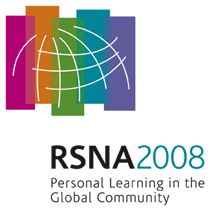1) Understand reported outcomes and limitations of image-guided ablation in the treatment of HCC. 2) Identify the synergy between image-guided ablation and transarterial chemoembolisation in HCC treatment. 3) Appreciate the role of image-guided ablation and combined therapies in the current therapeutic management of HCC patients.
Image-guided percutaneous ablation is currently accepted as the best therapeutic choice for patients with early-stage HCC when transplantation or resection are precluded. Several methods for chemical or thermal tumor destruction have been developed and tested clinically during the past two decades. The seminal technique used for local treatment of HCC has been percutaneous ethanol injection (PEI). Several studies have provided indirect evidence that PEI improves the natural history of nonsurgical patients with early-stage HCC. Its major limitation is the high rate of local recurrence. Radiofrequency ablation (RFA) has been the most widely assessed alternative to PEI. Four RCTs have shown that RFA achieves more effective and reproducible tumor destruction than PEI, leading to a better local control of the disease. As a result, RFA has been established as the primary ablative modality. Several questions concerning local ablation of HCC, however, are still open. The applicability of RFA as a safe and effective bridge to transplantation is not fully elucidated. The value of newer methods for local tumor treatment, such as microwave or cryoablation, as compared to RFA, has not been investigated in the setting of RCTs. The efficacy of combination therapies, including RFA plus administration of drug-eluting beads or thermal sensitive drug carriers is currently being explored. Despite the advances in local treatment, long-term outcome of treated patients remains unsatisfactory because of the high rate of tumor recurrence due to dissemination or development of de novo tumors. Clinical trials aimed at evaluating the usefulness of adjuvant molecular targeted therapies after successful ablation are warranted.
Lencioni, R,
Ablation and Combination Therapy in Hepatocellular Carcinoma: Expected Outcomes Based on Literature. Radiological Society of North America 2008 Scientific Assembly and Annual Meeting, February 18 - February 20, 2008 ,Chicago IL.
http://archive.rsna.org/2008/6007093.html

